Search Result
Results for "
melanocytes
" in MedChemExpress (MCE) Product Catalog:
1
Isotope-Labeled Compounds
| Cat. No. |
Product Name |
Target |
Research Areas |
Chemical Structure |
-
- HY-P3452
-
|
|
Tyrosinase
|
Inflammation/Immunology
|
|
Tetrapeptide-30 is a skin-brightening peptide consisting of four amino acids. Tetrapeptide-30 can act as a tyrosinase inhibitor, lightening hyperpigmentation and evening out skin tone by reducing the amount of tyrosinase and inhibiting melanocyte activation .
|
-
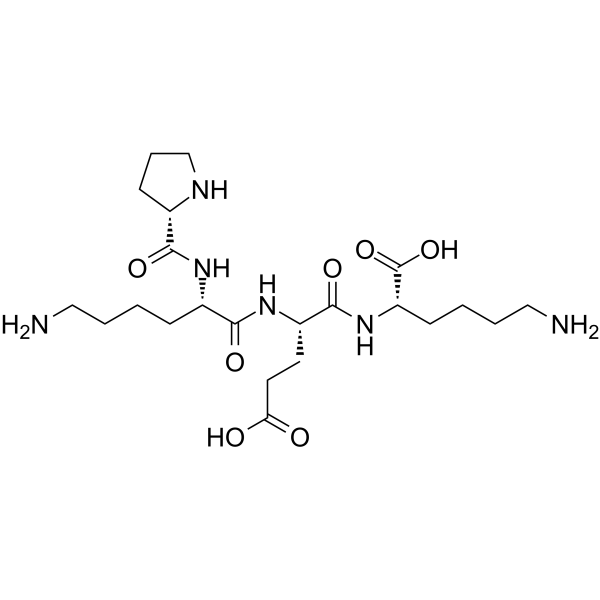
-
- HY-N2466
-
|
MT-I; [Nle4,D-Phe7]-α-MSH
|
Melanocortin Receptor
|
Neurological Disease
Cancer
|
|
Melanotan I is a potent non-selective melanocortin receptor (MCR) agonist. Melanotan I is a synthetic analogue of α-melanocyte stimulating hormone (α-MSH) that stimulates melanogenesis. Melanotan I can induce skin tanning by mimicking the actions of a-MSH on the melanocortin type 1 receptors (MC1R) of melanocytes. Melanotan I can be used for the research of sun-induced skin cancer, melanoma, inflammation and male erectile dysfunction .
|
-
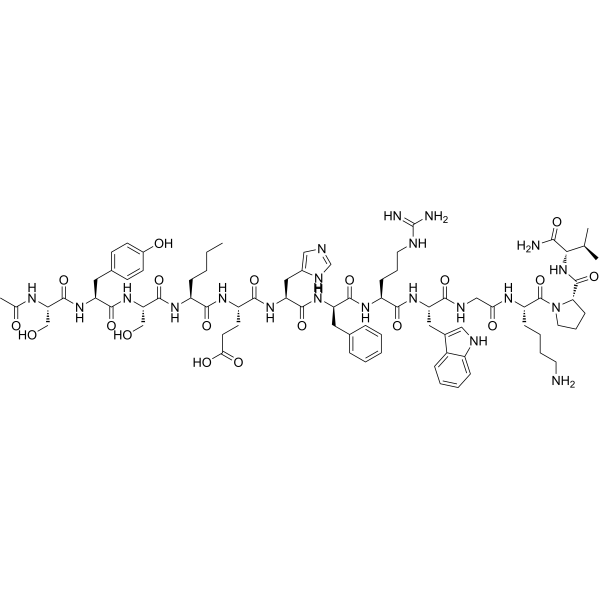
-
- HY-P5247A
-
-
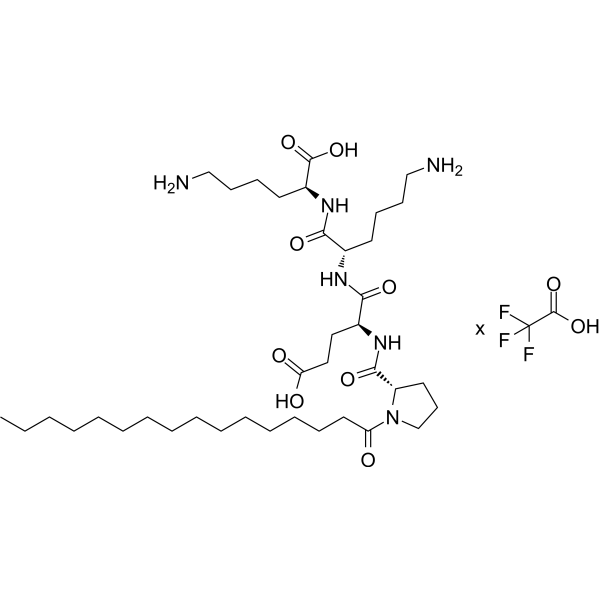
-
- HY-N0948
-
|
(R)-(-)-Rhododendrol; (-)-Betuligenol
|
Others
|
Inflammation/Immunology
|
|
Rhododendrol can induce leukoderma. Rhododendrol induces generation of hydroxyl radicals and melanocyte cytotoxicity by increasing glutathione levels. Rhododendrol is a phenolic compound that can be isolated from plants such as Acer nikoense and Betula platyphylla .
|
-
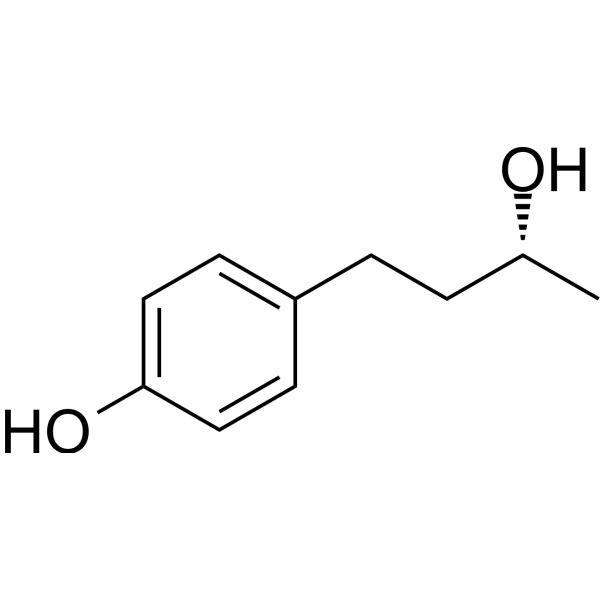
-
- HY-N1658
-
|
|
Tyrosinase
|
Others
|
|
2,3-Dihydroisoginkgetin, a biflavonoid, is a inhibitor of Tyrosinase, with 36.84% inhibition at 0.1 mM. 2,3-Dihydroisoginkgetin shows less toxicity in HEMn (human epidermal melanocytes) cells, with an IC50 of 86.16 μM .
|
-
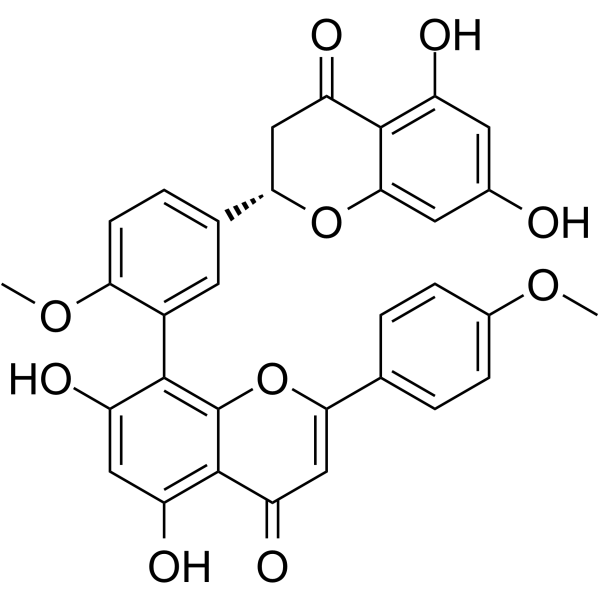
-
- HY-P0097A
-
|
Melanostatine-5 acetate salt
|
Melanocortin Receptor
|
Metabolic Disease
Endocrinology
Cancer
|
|
Nonapeptide-1 (Melanostatine-5) acetate salt, a peptide hormone, is a selective antagonist of MC1R (Ki: 40 nM). Nonapeptide-1 acetate salt is a competitive α-MSH antagonist that potently inhibits intracellular cAMP and melanosome dispersion induced by α-MSH in melanocytes (IC50: 2.5 nM and 11 nM, respectively). Nonapeptide-1 acetate salt inhibits melanin synthesis, and can be used in the research of skin pigmentation and regulation of steroid production in the adrenal gland, skin cancer .
|
-
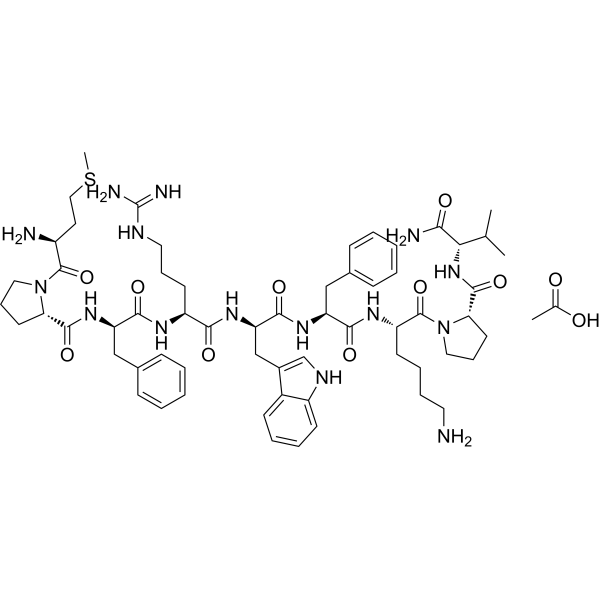
-
- HY-P0097
-
|
Melanostatine-5
|
Melanocortin Receptor
|
Metabolic Disease
Endocrinology
Cancer
|
|
Nonapeptide-1 (Melanostatine-5), a peptide hormone, is a selective antagonist of MC1R (Ki: 40 nM). Nonapeptide-1 is a competitive α-MSH antagonist that potently inhibits intracellular cAMP and melanosome dispersion induced by α-MSH in melanocytes (IC50: 2.5 nM and 11 nM, respectively). Nonapeptide-1 inhibits melanin synthesis, and can be used in the research of skin pigmentation and regulation of steroid production in the adrenal gland, skin cancer .
|
-
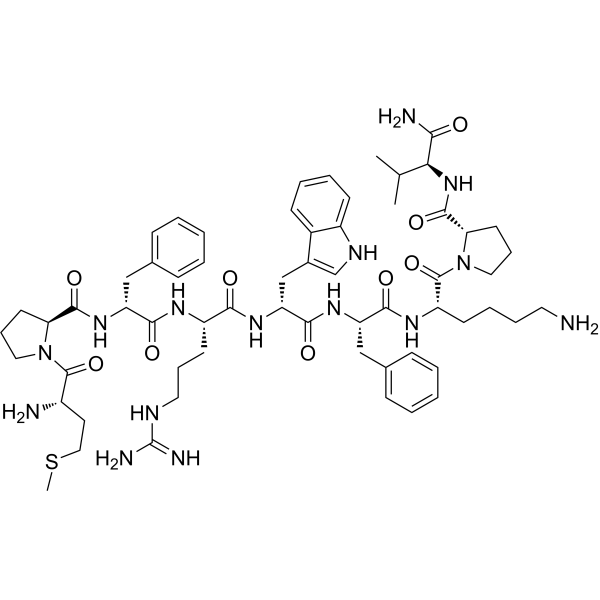
-
- HY-P0096
-
|
|
Tyrosinase
Sirtuin
|
Inflammation/Immunology
Endocrinology
|
|
Decapeptide-12, a small oligopeptide, is a tyrosinase inhibitor that interacts with C-terminal residue of tyrosinase (Kd: 61.1 μM). Decapeptide-12 is a competitive inhibitor of mushroom tyrosinase (IC50: 40 µM). Decapeptide-12 also increases transcription of SIRT. Decapeptide-12 reduces melanin content in melanocytes. Decapeptide-12 is used for the research of melanogenesis, senescence, inflammation .
|
-

-
- HY-P1531
-
|
|
Melanocortin Receptor
|
Metabolic Disease
Endocrinology
|
|
γ-1-Melanocyte Stimulating Hormone (MSH), amide is a 11-amino acid peptide. γ-1-Melanocyte Stimulating Hormone (MSH) regulates sodium (Na +) balance and blood pressure through activation of the melanocortin receptor 3 (MC3-R).
|
-

-
- HY-135014
-
|
|
Melanocortin Receptor
Adrenergic Receptor
|
Others
|
|
Undecylenoyl phenylalanine is an antagonist for α-melanocyte-stimulating hormone (MSH) and β-adrenergic receptor (β-ADR) to reduce the melanogenesis in melanocytes, reduces hyperpigmentation and thus ameliorates melasma lesions and solar lentigines .
|
-
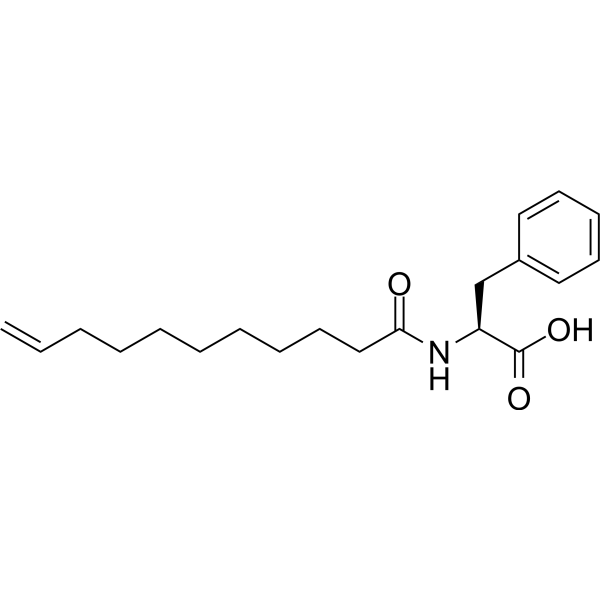
-
- HY-114745
-
|
|
Others
|
Cancer
|
|
MoTP is a specific platelet activating factor receptor antagonist and can induce melanocyte ablation. MoTP can be used for the research of cancer.
|
-
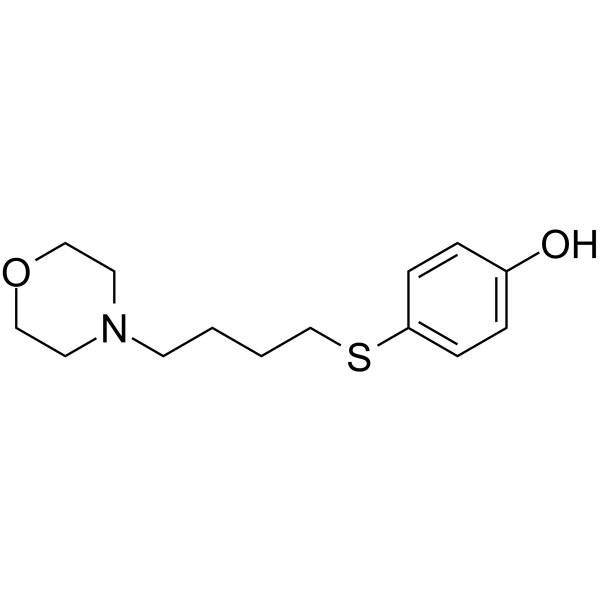
-
- HY-P10265
-
|
|
Melanocortin Receptor
|
Others
|
|
Melanostatin, frog is an inhibitor for α-melanocyte-stimulating hormone (α-MSH) release, with an IC50 of 60 nM .
|
-

-
- HY-N2466A
-
|
MT-I acetate; [Nle4,D-Phe7]-α-MSH acetate
|
Melanocortin Receptor
|
Cancer
|
|
Melanotan I acetate is a potent non-selective melanocortin receptor (MCR) agonist. Melanotan I acetate is a synthetic analogue of α-melanocyte stimulating hormone (α-MSH) that stimulates melanogenesis. Melanotan I acetate can induce skin tanning by mimicking the actions of a-MSH on the melanocortin type 1 receptors (MC1R) of melanocytes. Melanotan I acetate can be used for sunlight-induced skin cancers research .
|
-
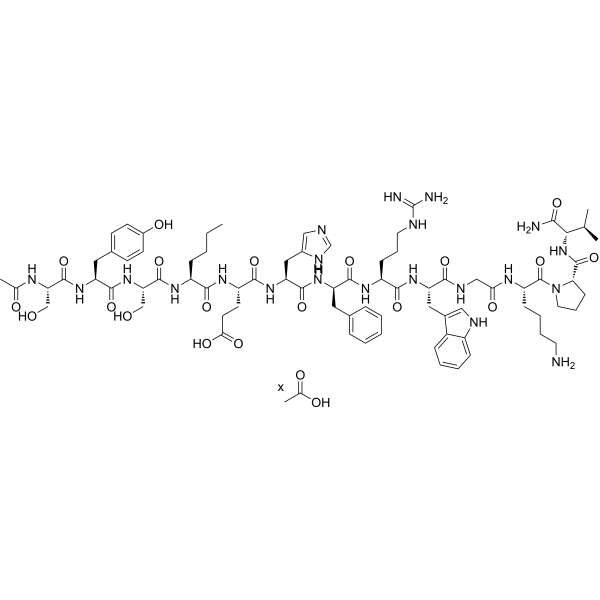
-
- HY-P1869
-
-

-
- HY-N7587
-
|
|
Melanocortin Receptor
|
Metabolic Disease
|
|
Chlorophorin is a inhibitor of Melanocortin Receptor. Chlorophorin reduces tyrosinase activity and inhibits a-melanocyte-stimulating hormone-induced melanin production in B16F10 melanoma cells .
|
-
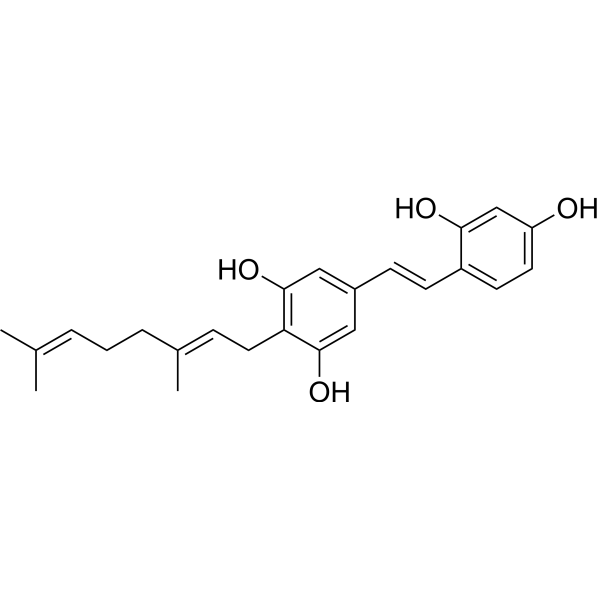
-
- HY-P1504
-
-

-
- HY-125860
-
|
Polyphenol oxidase
|
Tyrosinase
|
Metabolic Disease
|
|
Tyrosinase (EC 1.14.18.1) (Polyphenol oxidase) is a rate-limiting enzyme that controls the production of melanin and is encoded by TYR gene. Tyrosinase is mainly found in melanosomes synthesized by skin melanocytes .
|
-
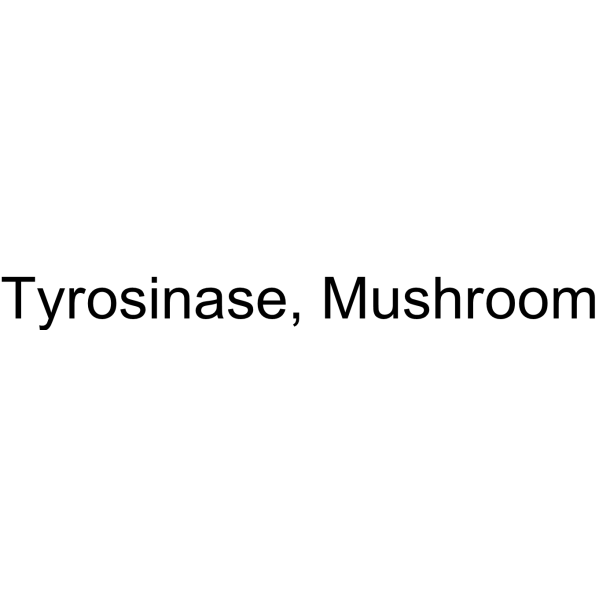
-
- HY-P1504A
-
-

-
- HY-P5247
-
-
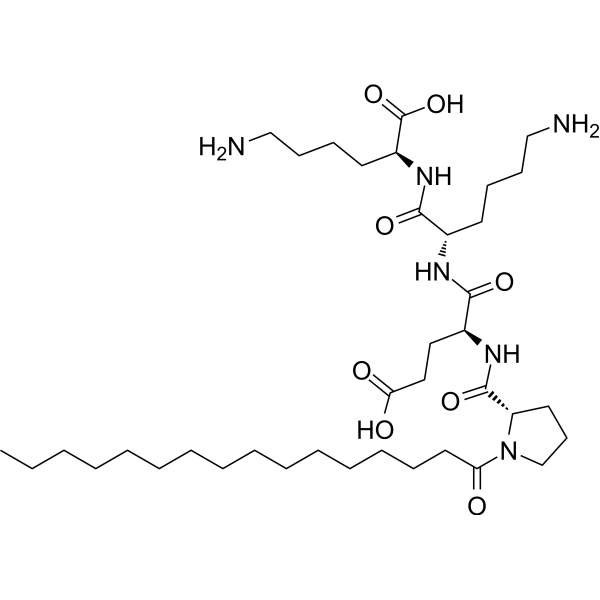
-
- HY-105077A
-
|
INN 00835 diTFA
|
5-HT Receptor
|
Neurological Disease
|
|
Nemifitide diTFA (INN 00835 diTFA) is a synthetic pentapeptide antidepressant with a potential for rapid onset of action . Nemifitide diTFA is a peptide analog of melanocyte-inhibiting factor (MIF) . Nemifitide diTFA can cross the blood-brain barrier .
|
-
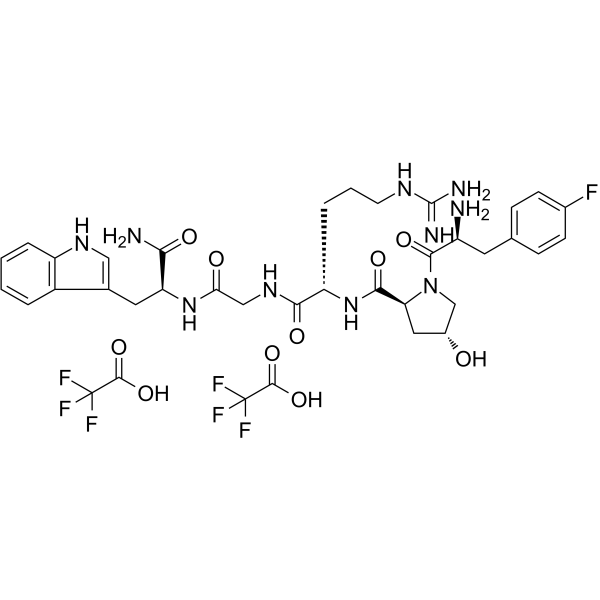
-
- HY-N1063
-
|
Xanthoxyline
|
Fungal
|
Infection
Metabolic Disease
|
|
Xanthoxylin (Xanthoxyline) can be isolated from Zanthoxylum simulans. Xanthoxylin has antifungal and antioxidant effects. The MIC of Xanthoxylin against Toxoplasma neonatorum and Aspergillus fumigatus were 50 µg/mL and 75 µg/mL, respectively. Xanthoxylin can be used in the study of anti-epileptic diseases .
|
-
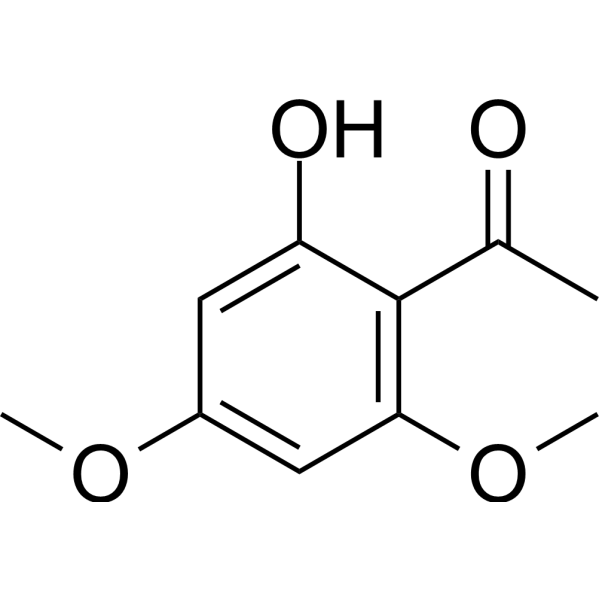
-
- HY-126618
-
|
|
Tyrosinase
|
Cancer
|
|
Aspochalasin I exhibits cytotoxicity against cancer cells NCIH460, MCF-7 and SF-268, with IC50s of 22.1, 33.4 and 19.9 μM. Aspochalasin I inhibits melanogenesis (IC50 of 22.4 μM) through inhibition of tyrosinase, and can thus be used as whitening agent .
|
-

-
- HY-155189
-
|
|
Melanocortin Receptor
|
Others
|
|
IIIM-8 is a melanogenesis inhibitor. IIIM-8 inhibits pigment production both in vitro and in vivo without incurring any cytotoxicity in Human Adult Epidermal Melanocytes (HAEM). IIIM-8 can be used for hyperpigmentation disorders research .
|
-
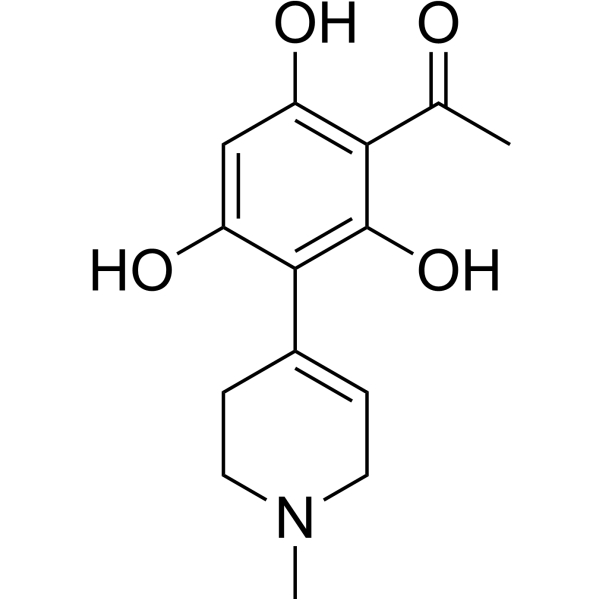
-
- HY-P0252
-
α-MSH
Maximum Cited Publications
10 Publications Verification
α-Melanocyte-Stimulating Hormone
|
Melanocortin Receptor
|
Neurological Disease
Metabolic Disease
Inflammation/Immunology
|
|
α-MSH (α-Melanocyte-Stimulating Hormone), an endogenous neuropeptide, is an endogenous melanocortin receptor 4 (MC4R) agonist with anti-inflammatory and antipyretic activities. α-MSH is a post-translational derivative of pro-opiomelanocortin (POMC) .
|
-
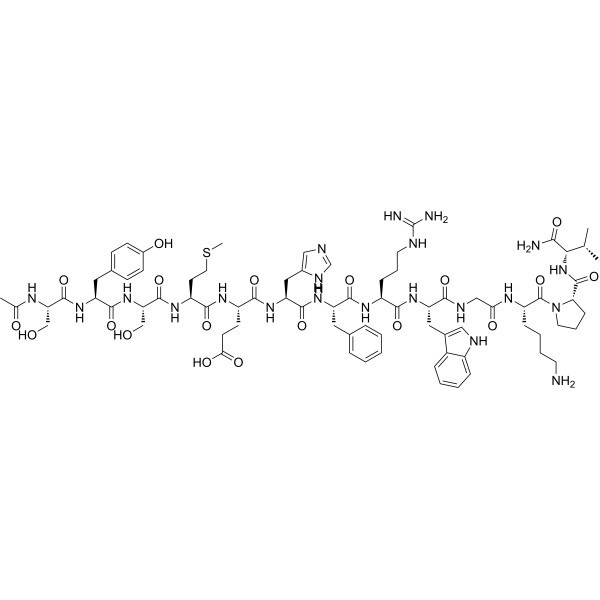
-
- HY-18678
-
|
PT-141
|
Melanocortin Receptor
|
Endocrinology
|
|
Bremelanotide (PT-141) is an analogue of α-melanocyte-stimulating hormone (α-MSH). Bremelanotide activates the mPOA and other hypothalamic and limbic regions of the brain involved in sexual behavior. Bremelanotide can be used for researching hypoactive sexual desire disorders .
|
-
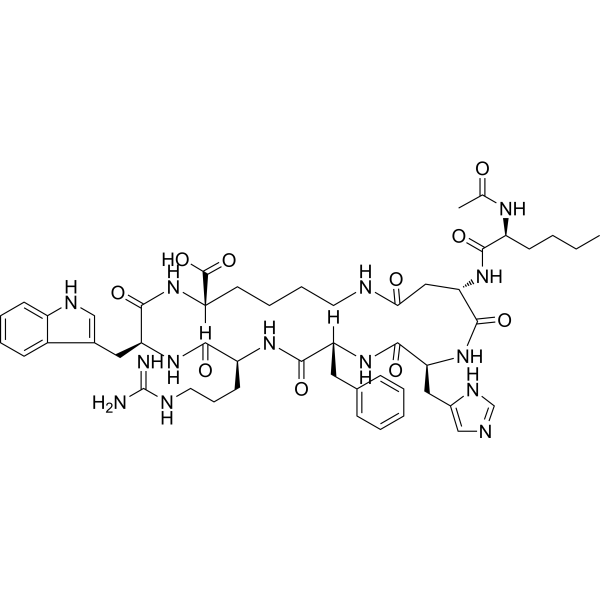
-
- HY-P0252A
-
-
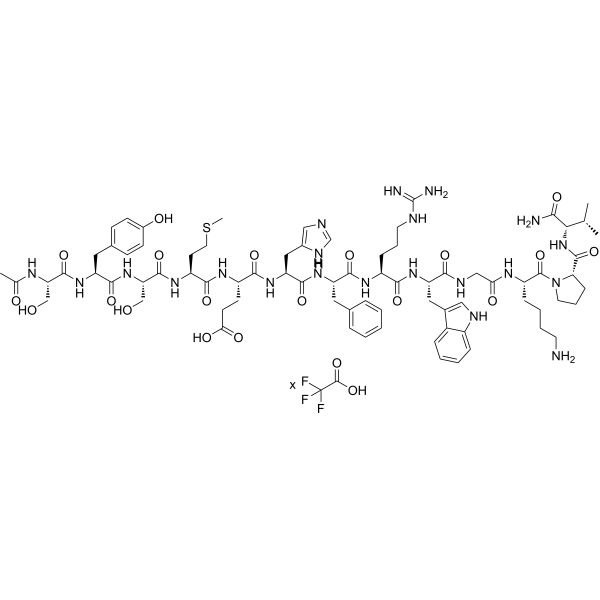
-
- HY-P3645
-
|
|
Melanocortin Receptor
|
Others
|
|
(Nle4)-α-MSH is a synthetic analogue of α-MSH (HY-P0252), a melanocyte-stimulating hormone. (Nle4)-α-MSH reversibly darkens frog skins and also exhibits prolonged activity after heat-alkali treatment .
|
-
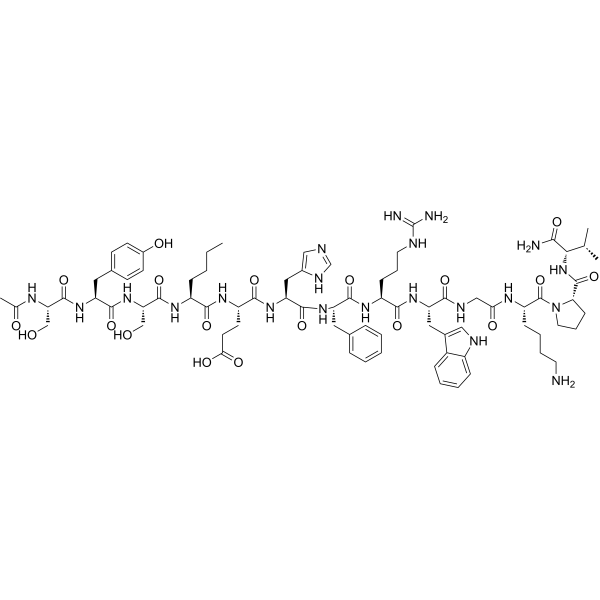
-
- HY-P0252B
-
|
α-Melanocyte-Stimulating Hormone free acid
|
Melanocortin Receptor
|
Neurological Disease
|
|
α-MSH free acid (α-Melanocyte-Stimulating Hormone free acid) is an MC3R and MC4R agonist with EC50s of 0.16 nM and 5.6 nM, respectively. α-MSH free acid activates cAMP generation at MC3R and MC4R .
|
-
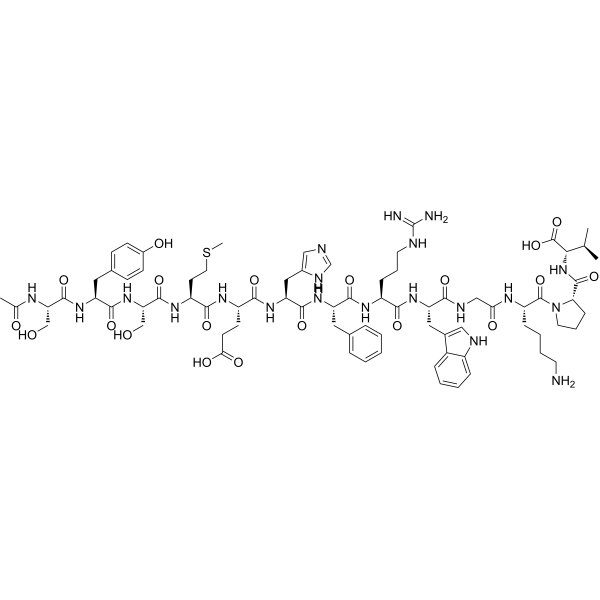
-
- HY-122866
-
|
|
Ras
|
Cancer
|
|
ZT-12-037-01 is a STK19-targeted inhibitor, has a high-affinity interaction with STK19 protein and inhibits oncogenic NRAS-driven melanocyte malignant transformation. ZT-12-037-01 is an ATP-competitive inhibitor, inhibiting phosphorylation of NRAS (major isoform of Ras family) with an IC50 of 24 nM .
|
-
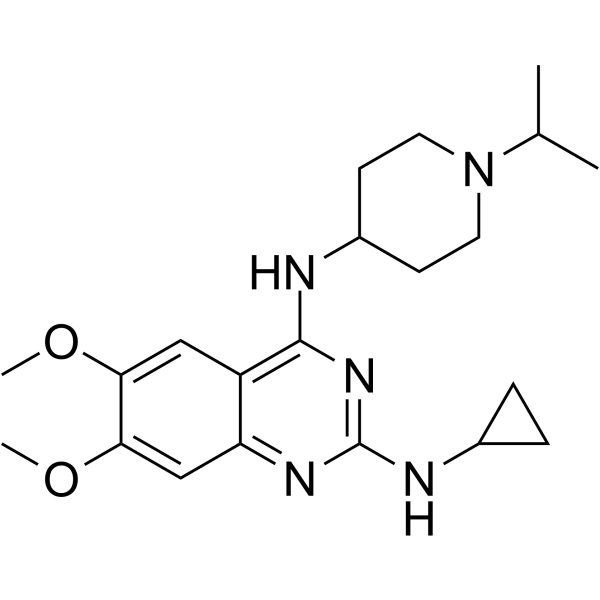
-
- HY-P2336
-
|
|
Melanocortin Receptor
|
Cancer
|
|
CCZ01048, a α-melanocyte-stimulating hormone (α-MSH) analogue, exhibits high binding affinity to melanocortin 1 receptor (MC1R) with a Ki of 0.31 nM. CCZ01048 shows rapid internalization into B16F10 melanoma cells and high in vivo stability. CCZ01048 is a promising candidate for PET imaging of malignant melanoma .
|
-
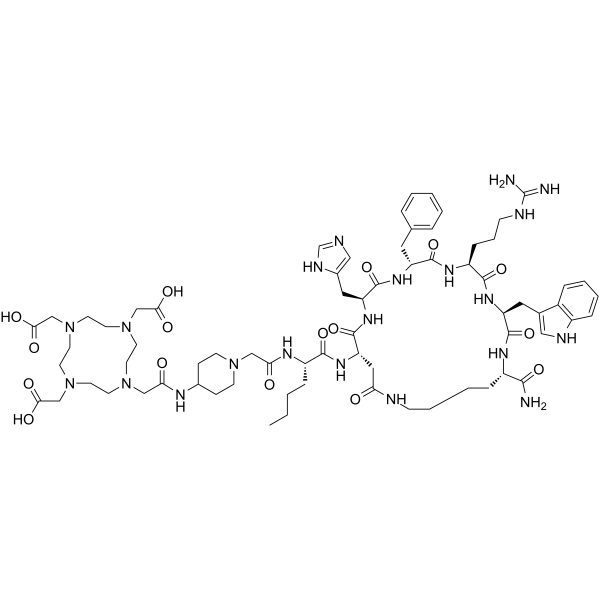
-
- HY-147855
-
|
|
ERK
Apoptosis
|
Cancer
|
|
ACA-28 (compound 2a) is a potent ERK MAPK signaling modulator. ACA-28 selectively inhibits cancer cell growth by inducing apoptosis with ERK hyperactivation
ACA-28 inhibits cell growth of melanoma cells (SK-MEL-28) and normal melanocytes (NHEM), with IC50 values of 5.3 and 10.1 μM, respectively .
|
-
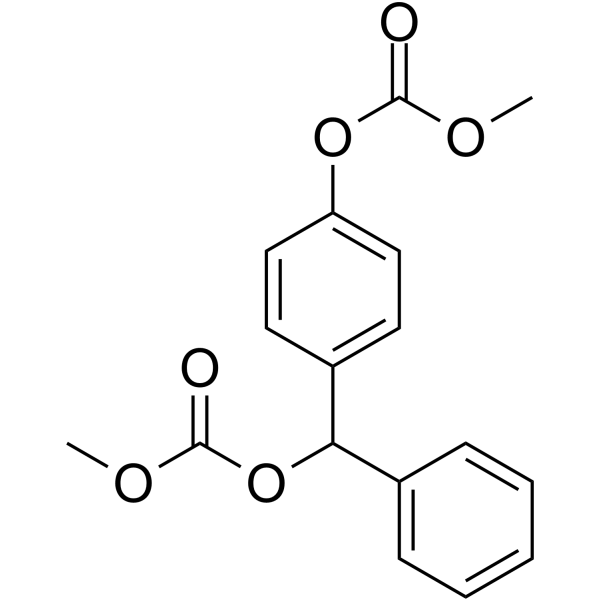
-
- HY-P99622
-
|
IMC-20D7S
|
Tyrosinase
|
Cancer
|
|
Flanvotumab (IMC-20D7S) is a human monoclonal antibody targeting to tyrosinase-related protein (TYRP1), specifically expressed in melanocytes and melanoma cells. Flanvotumab acts function via natural killing-mediated antibody-dependent cell-mediated cytotoxicity (ADCC). Flanvotumab has potent anti-tumor activity and good tolerance .
|
-

-
- HY-P3662
-
|
|
Tyrosinase
|
Cancer
|
|
Ac-[Nle4,D-Phe7]-α-MSH (4-10)-NH2 is a melanotropin, a melanocyte-stimulating hormone. Ac-[Nle4,D-Phe7]-α-MSH (4-10)-NH2 stimulates tyrosinase and exhibits thermoregulatory effect in rats model .
|
-
![Ac-[Nle4,D-Phe7]-α-MSH (4-10)-NH2](//file.medchemexpress.com/product_pic/hy-p3662.gif)
-
- HY-P3567
-
|
|
Melanocortin Receptor
|
Neurological Disease
|
|
(p-Iodo-Phe7)-ACTH (4-10) is a adrenocorticotrophic hormone (ACTH) derivative, which is produced and secreted by the anterior pituitary gland. (p-Iodo-Phe7)-ACTH (4-10) serves as a melanocortin (MC) receptor antagonist and inhibits α-melanocyte-stimulating hormone (α-MSH)-induced excessive grooming behavior in rats .
|
-
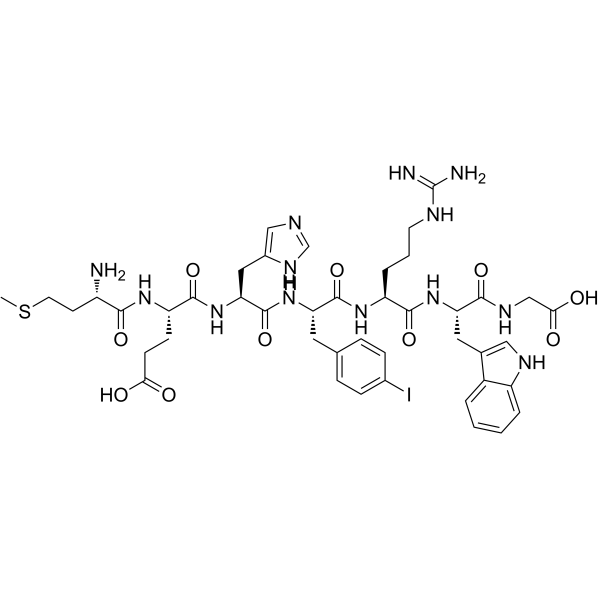
-
- HY-N0192S
-
|
β-Arbutin-d4
|
Isotope-Labeled Compounds
Tyrosinase
Endogenous Metabolite
|
Cancer
|
|
Arbutin-d4 is deuterium labeled Arbutin. Arbutin (β-Arbutin) is a competitive inhibitor of tyrosinase in melanocytes, with Kiapp values of 1.42 mM for monophenolase; 0.9 mM for diphenolase. Arbutin is also used as depigmenting agents[1]. Arbutin is a natural polyphenol isolated from the bearberry plant Arctostaphylos uvaursi, possesses with anti-oxidant, anti-inflammatory and anti-tumor properties[2][3].
|
-
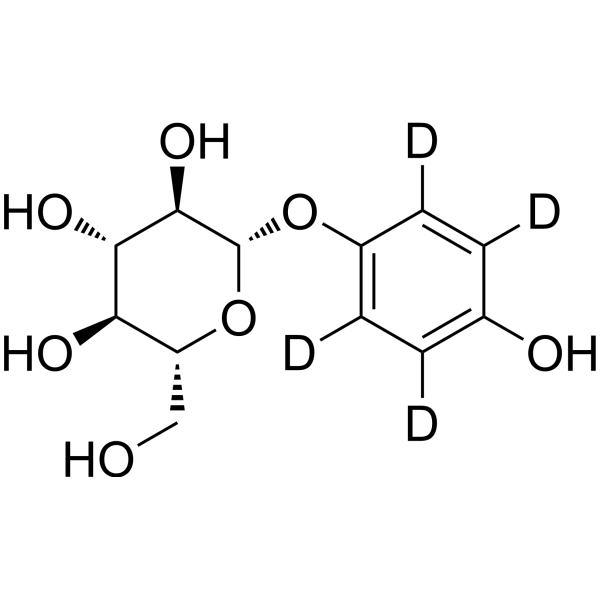
-
- HY-N0453
-
-
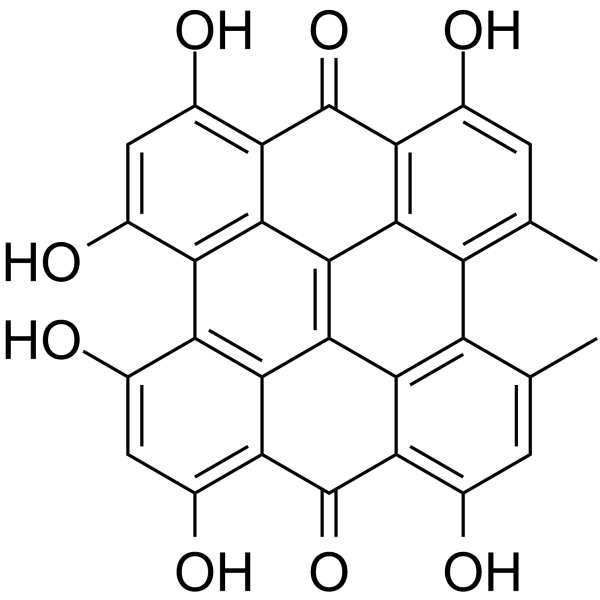
| Cat. No. |
Product Name |
Target |
Research Area |
-
- HY-P3452
-
|
|
Tyrosinase
|
Inflammation/Immunology
|
|
Tetrapeptide-30 is a skin-brightening peptide consisting of four amino acids. Tetrapeptide-30 can act as a tyrosinase inhibitor, lightening hyperpigmentation and evening out skin tone by reducing the amount of tyrosinase and inhibiting melanocyte activation .
|
-
- HY-N2466
-
|
MT-I; [Nle4,D-Phe7]-α-MSH
|
Melanocortin Receptor
|
Neurological Disease
Cancer
|
|
Melanotan I is a potent non-selective melanocortin receptor (MCR) agonist. Melanotan I is a synthetic analogue of α-melanocyte stimulating hormone (α-MSH) that stimulates melanogenesis. Melanotan I can induce skin tanning by mimicking the actions of a-MSH on the melanocortin type 1 receptors (MC1R) of melanocytes. Melanotan I can be used for the research of sun-induced skin cancer, melanoma, inflammation and male erectile dysfunction .
|
-
- HY-P0097A
-
|
Melanostatine-5 acetate salt
|
Melanocortin Receptor
|
Metabolic Disease
Endocrinology
Cancer
|
|
Nonapeptide-1 (Melanostatine-5) acetate salt, a peptide hormone, is a selective antagonist of MC1R (Ki: 40 nM). Nonapeptide-1 acetate salt is a competitive α-MSH antagonist that potently inhibits intracellular cAMP and melanosome dispersion induced by α-MSH in melanocytes (IC50: 2.5 nM and 11 nM, respectively). Nonapeptide-1 acetate salt inhibits melanin synthesis, and can be used in the research of skin pigmentation and regulation of steroid production in the adrenal gland, skin cancer .
|
-
- HY-P5247A
-
-
- HY-P0097
-
|
Melanostatine-5
|
Melanocortin Receptor
|
Metabolic Disease
Endocrinology
Cancer
|
|
Nonapeptide-1 (Melanostatine-5), a peptide hormone, is a selective antagonist of MC1R (Ki: 40 nM). Nonapeptide-1 is a competitive α-MSH antagonist that potently inhibits intracellular cAMP and melanosome dispersion induced by α-MSH in melanocytes (IC50: 2.5 nM and 11 nM, respectively). Nonapeptide-1 inhibits melanin synthesis, and can be used in the research of skin pigmentation and regulation of steroid production in the adrenal gland, skin cancer .
|
-
- HY-P0096
-
|
|
Tyrosinase
Sirtuin
|
Inflammation/Immunology
Endocrinology
|
|
Decapeptide-12, a small oligopeptide, is a tyrosinase inhibitor that interacts with C-terminal residue of tyrosinase (Kd: 61.1 μM). Decapeptide-12 is a competitive inhibitor of mushroom tyrosinase (IC50: 40 µM). Decapeptide-12 also increases transcription of SIRT. Decapeptide-12 reduces melanin content in melanocytes. Decapeptide-12 is used for the research of melanogenesis, senescence, inflammation .
|
-
- HY-P1531
-
|
|
Melanocortin Receptor
|
Metabolic Disease
Endocrinology
|
|
γ-1-Melanocyte Stimulating Hormone (MSH), amide is a 11-amino acid peptide. γ-1-Melanocyte Stimulating Hormone (MSH) regulates sodium (Na +) balance and blood pressure through activation of the melanocortin receptor 3 (MC3-R).
|
-
- HY-P10265
-
|
|
Melanocortin Receptor
|
Others
|
|
Melanostatin, frog is an inhibitor for α-melanocyte-stimulating hormone (α-MSH) release, with an IC50 of 60 nM .
|
-
- HY-N2466A
-
|
MT-I acetate; [Nle4,D-Phe7]-α-MSH acetate
|
Melanocortin Receptor
|
Cancer
|
|
Melanotan I acetate is a potent non-selective melanocortin receptor (MCR) agonist. Melanotan I acetate is a synthetic analogue of α-melanocyte stimulating hormone (α-MSH) that stimulates melanogenesis. Melanotan I acetate can induce skin tanning by mimicking the actions of a-MSH on the melanocortin type 1 receptors (MC1R) of melanocytes. Melanotan I acetate can be used for sunlight-induced skin cancers research .
|
-
- HY-P1869
-
-
- HY-P1503
-
|
Adrenocorticotropic Hormone (4-11), human
|
Peptides
|
Metabolic Disease
|
|
ACTH (4-11), an adrenocorticotropin hormone fragment, possesses a weak α-melanocyte stimulating hormone (α-MSH) potency only at high doses (100 and 1000 nM).
|
-
- HY-P1504
-
-
- HY-P1518
-
|
|
Peptides
|
Metabolic Disease
|
|
Adrenocorticotropic Hormone (ACTH) (1-10), human, an adrenocorticotropin hormone fragment, possesses a weak α-melanocyte stimulating hormone (α-MSH) potency only at high doses (100 and 1000 nM).
|
-
- HY-P1504A
-
-
- HY-P5247
-
-
- HY-105077A
-
|
INN 00835 diTFA
|
5-HT Receptor
|
Neurological Disease
|
|
Nemifitide diTFA (INN 00835 diTFA) is a synthetic pentapeptide antidepressant with a potential for rapid onset of action . Nemifitide diTFA is a peptide analog of melanocyte-inhibiting factor (MIF) . Nemifitide diTFA can cross the blood-brain barrier .
|
-
- HY-P5251
-
|
|
Peptides
|
Metabolic Disease
|
|
Oligopeptide-68 is a bioactive peptide with anti-aging effect and has been reported used as a cosmetic ingredient .
|
-
- HY-P2506
-
|
Mgp100 (25-33)
|
Peptides
|
Cancer
|
|
Gp100 (25-33), mouse sequence is found in residues 25 to 33 of the mouse self/tumor antigen glycoprotein (mgp100). Mgp100 is an enzyme involved in pigment synthesis, and the epitope fragment is expressed in both normal melanocytes and melanoma cells .
|
-
- HY-P0252
-
α-MSH
Maximum Cited Publications
10 Publications Verification
α-Melanocyte-Stimulating Hormone
|
Melanocortin Receptor
|
Neurological Disease
Metabolic Disease
Inflammation/Immunology
|
|
α-MSH (α-Melanocyte-Stimulating Hormone), an endogenous neuropeptide, is an endogenous melanocortin receptor 4 (MC4R) agonist with anti-inflammatory and antipyretic activities. α-MSH is a post-translational derivative of pro-opiomelanocortin (POMC) .
|
-
- HY-P2506A
-
|
Mgp100 (25-33) (TFA)
|
Peptides
|
Cancer
|
|
Gp100 (25-33), mouse TFA sequence is found in residues 25 to 33 of the mouse self/tumor antigen glycoprotein (mgp100). Mgp100 is an enzyme involved in pigment synthesis, and the epitope fragment is expressed in both normal melanocytes and melanoma cells .
|
-
- HY-18678
-
|
PT-141
|
Melanocortin Receptor
|
Endocrinology
|
|
Bremelanotide (PT-141) is an analogue of α-melanocyte-stimulating hormone (α-MSH). Bremelanotide activates the mPOA and other hypothalamic and limbic regions of the brain involved in sexual behavior. Bremelanotide can be used for researching hypoactive sexual desire disorders .
|
-
- HY-P0252A
-
-
- HY-P3645
-
|
|
Melanocortin Receptor
|
Others
|
|
(Nle4)-α-MSH is a synthetic analogue of α-MSH (HY-P0252), a melanocyte-stimulating hormone. (Nle4)-α-MSH reversibly darkens frog skins and also exhibits prolonged activity after heat-alkali treatment .
|
-
- HY-P0252B
-
|
α-Melanocyte-Stimulating Hormone free acid
|
Melanocortin Receptor
|
Neurological Disease
|
|
α-MSH free acid (α-Melanocyte-Stimulating Hormone free acid) is an MC3R and MC4R agonist with EC50s of 0.16 nM and 5.6 nM, respectively. α-MSH free acid activates cAMP generation at MC3R and MC4R .
|
-
- HY-P2336
-
|
|
Melanocortin Receptor
|
Cancer
|
|
CCZ01048, a α-melanocyte-stimulating hormone (α-MSH) analogue, exhibits high binding affinity to melanocortin 1 receptor (MC1R) with a Ki of 0.31 nM. CCZ01048 shows rapid internalization into B16F10 melanoma cells and high in vivo stability. CCZ01048 is a promising candidate for PET imaging of malignant melanoma .
|
-
- HY-P3662
-
|
|
Tyrosinase
|
Cancer
|
|
Ac-[Nle4,D-Phe7]-α-MSH (4-10)-NH2 is a melanotropin, a melanocyte-stimulating hormone. Ac-[Nle4,D-Phe7]-α-MSH (4-10)-NH2 stimulates tyrosinase and exhibits thermoregulatory effect in rats model .
|
-
- HY-P3567
-
|
|
Melanocortin Receptor
|
Neurological Disease
|
|
(p-Iodo-Phe7)-ACTH (4-10) is a adrenocorticotrophic hormone (ACTH) derivative, which is produced and secreted by the anterior pituitary gland. (p-Iodo-Phe7)-ACTH (4-10) serves as a melanocortin (MC) receptor antagonist and inhibits α-melanocyte-stimulating hormone (α-MSH)-induced excessive grooming behavior in rats .
|
| Cat. No. |
Product Name |
Target |
Research Area |
-
- HY-P99622
-
|
IMC-20D7S
|
Tyrosinase
|
Cancer
|
|
Flanvotumab (IMC-20D7S) is a human monoclonal antibody targeting to tyrosinase-related protein (TYRP1), specifically expressed in melanocytes and melanoma cells. Flanvotumab acts function via natural killing-mediated antibody-dependent cell-mediated cytotoxicity (ADCC). Flanvotumab has potent anti-tumor activity and good tolerance .
|
| Cat. No. |
Product Name |
Category |
Target |
Chemical Structure |
| Cat. No. |
Product Name |
Chemical Structure |
-
- HY-N0192S
-
|
|
|
Arbutin-d4 is deuterium labeled Arbutin. Arbutin (β-Arbutin) is a competitive inhibitor of tyrosinase in melanocytes, with Kiapp values of 1.42 mM for monophenolase; 0.9 mM for diphenolase. Arbutin is also used as depigmenting agents[1]. Arbutin is a natural polyphenol isolated from the bearberry plant Arctostaphylos uvaursi, possesses with anti-oxidant, anti-inflammatory and anti-tumor properties[2][3].
|
-

Your information is safe with us. * Required Fields.
Inquiry Information
- Product Name:
- Cat. No.:
- Quantity:
- MCE Japan Authorized Agent:







































![Ac-[Nle4,D-Phe7]-α-MSH (4-10)-NH2](http://file.medchemexpress.com/product_pic/hy-p3662.gif)





